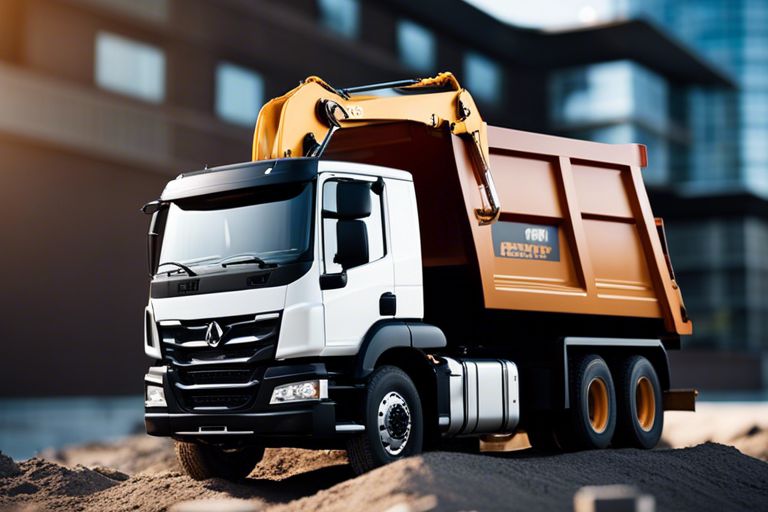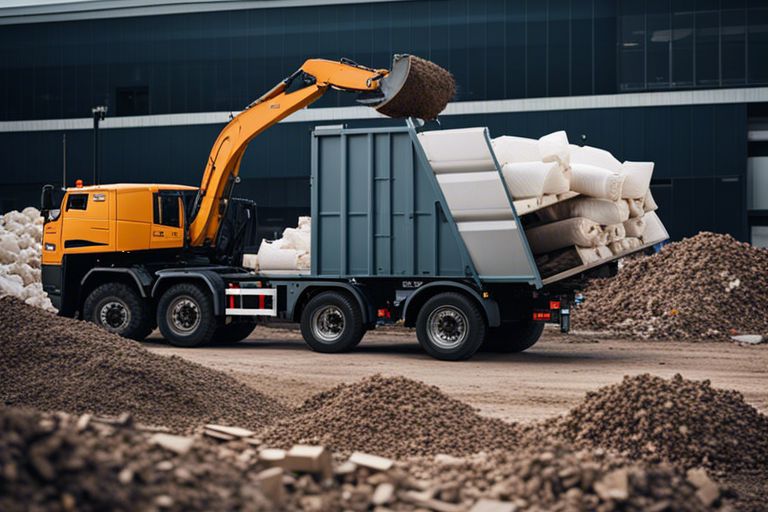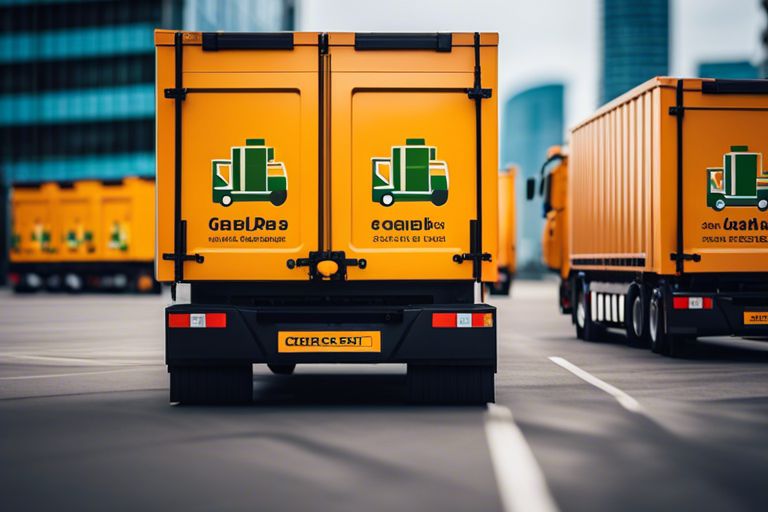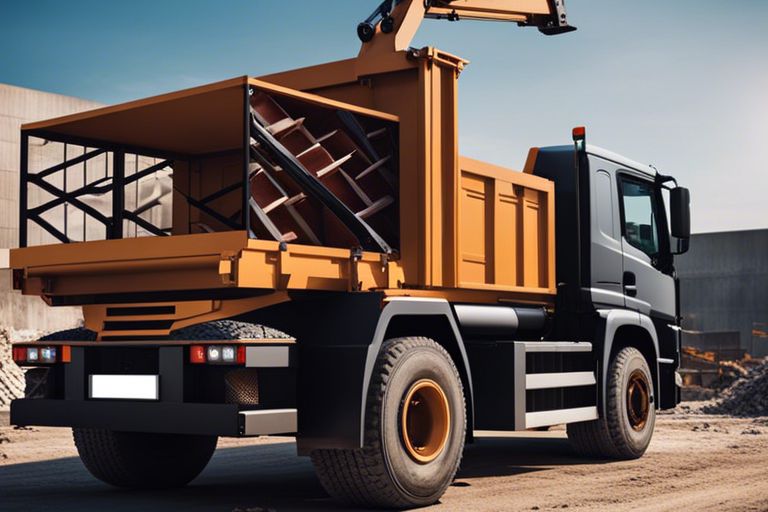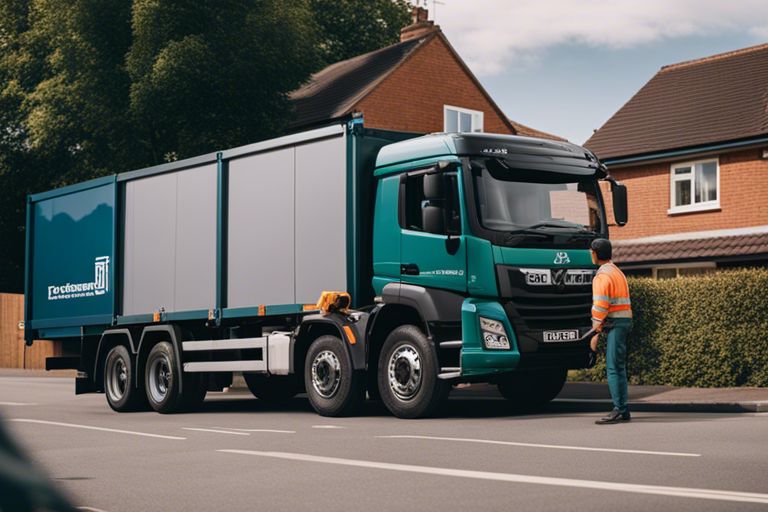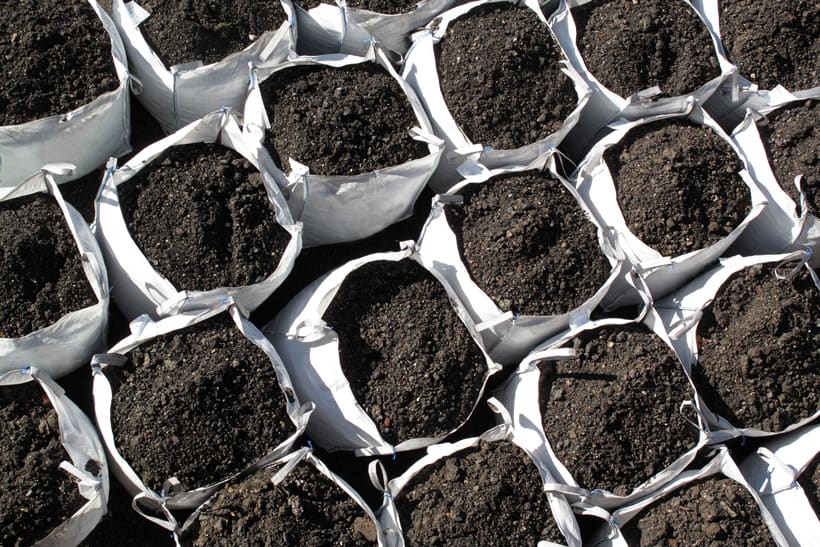Mellifluous melodies, delectable dishes, and jubilant celebrations – we all love a good event. However, what often goes unnoticed is the aftermath of these festivities. Improper waste removal after an event can lead to environmental hazards, health risks, and legal consequences. It is imperative to understand the significance of proper waste management to ensure the safety and well-being of both the community and the environment. In this blog post, we will explore the importance of events cleanup and provide insights on how to effectively manage waste post-event. For further guidance, you may also refer to Three easy steps to successful Event Waste Management.
Key Takeaways:
- Proper Waste Disposal: Ensuring proper waste removal after an event is essential to maintain cleanliness and environmental responsibility.
- Collaboration with Waste Management Companies: Working with reputable waste management companies can help in efficiently disposing of different types of waste generated during events.
- Compliance with Local Regulations: It is crucial to adhere to local waste disposal regulations to avoid any legal implications and ensure a responsible approach towards waste management.
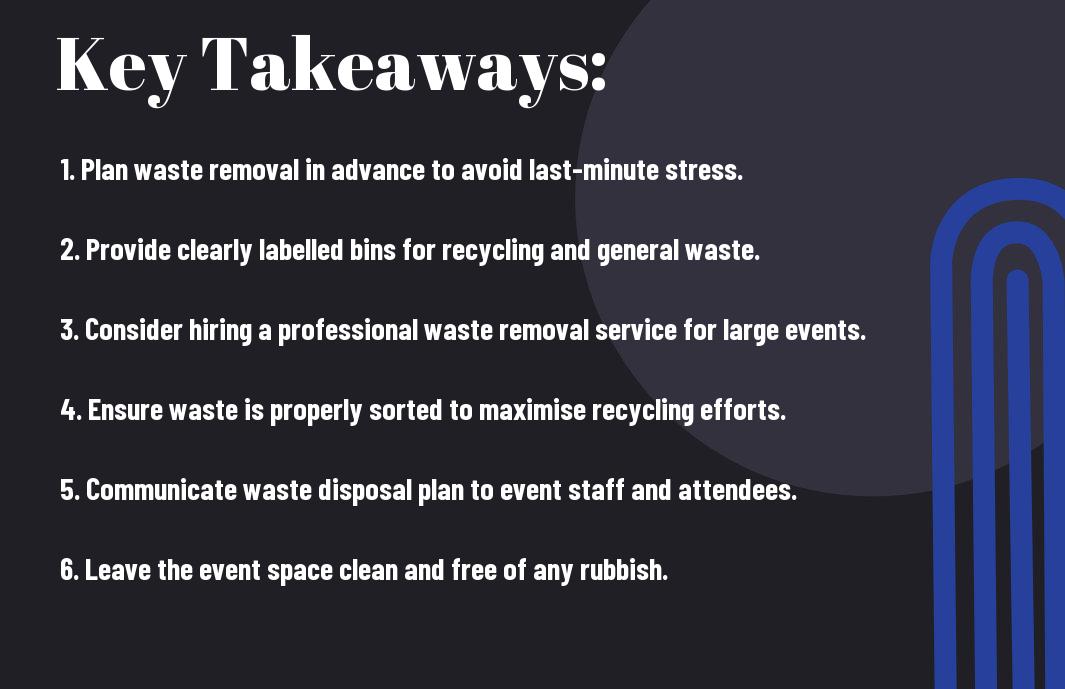
Pre-Event Planning
Before hosting an event, it’s essential to include proper waste removal planning in your pre-event preparations. This will ensure that the event runs smoothly and minimises its environmental impact.
Assessing Waste Management Needs
When planning an event, it’s crucial to assess the waste management needs to determine the type and amount of waste that will be generated. This includes considering factors such as the size of the event, the type of waste that will be produced, and the facilities available for waste disposal. Consulting with waste management experts and conducting a waste audit can help in accurately assessing the waste management needs.
Additionally, it is important to consider the potential environmental impact of the waste generated, including any hazardous or dangerous materials that may need special treatment or disposal.
Selecting Appropriate Waste Removal Services
After identifying the waste management needs, the next step is to select appropriate waste removal services. This involves researching and choosing a reputable waste removal company that can handle the specific waste requirements of the event. Factors to consider when selecting a waste removal service include their experience, the range of services they offer, their reliability, and their ability to safely and legally dispose of the waste generated.
It’s essential to engage with waste removal services that abide by environmental regulations and have the necessary permits and certifications for waste disposal.
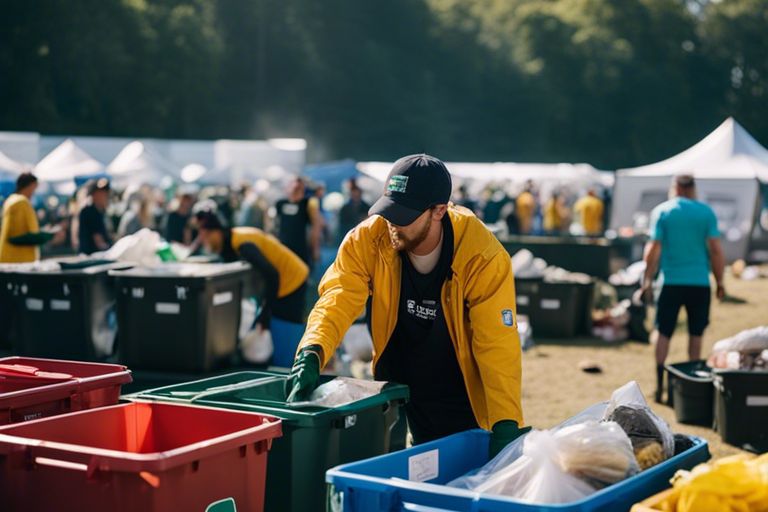
During the Event
Proper waste management should start from the moment the event begins. It is important to have a designated area for waste bins and clear signage to encourage attendees to dispose of their waste responsibly. Regular checks should be carried out to ensure that the waste is being segregated properly and to address any issues that may arise.
Effective Waste Segregation Strategies
One of the most effective waste segregation strategies is to provide different bins for different types of waste, such as general waste, recyclables, and food waste. Clear labels and colour-coding can help to guide attendees on which items should be disposed of in each bin. Additionally, having dedicated staff or volunteers to monitor and assist with waste segregation can ensure that it is carried out effectively.
Managing and Minimizing Waste on-site
Minimising waste on-site can be achieved by encouraging the use of reusable or compostable items, such as reusable cups and cutlery, and providing water refill stations instead of single-use plastic bottles. It is also important to liaise with vendors and suppliers to minimize packaging and waste from the source. By implementing these measures, the amount of waste generated during the event can be significantly reduced.
It is crucial to manage and minimize waste on-site effectively to reduce the environmental impact of the event. By implementing proper waste segregation strategies and minimizing waste generation, organisers can contribute to a more sustainable and eco-friendly event.
Post-Event Cleanup Operations
Scheduling and Executing Waste Collection
After your event, it is crucial to schedule and execute proper waste collection to ensure a clean and environmentally friendly venue. Whether it’s hiring a waste management company or coordinating with local authorities for waste removal, this step is essential in maintaining the cleanliness and safety of the event space.
Allocate specific time slots for waste collection teams to avoid any disruptions to the event flow and ensure that all waste is properly disposed of according to regulations. Strongly emphasise the importance of timely and effective waste collection to prevent any potential hazards or environmental harm.
Recycling and Donating Materials
Another crucial aspect of post-event cleanup is the recycling and donating of materials. Separate recyclable items from general waste and arrange for them to be taken to the appropriate recycling facilities. Any reusable items such as decorations or excess food can be donated to local charities or shelters, reducing waste and benefiting those in need.
By actively participating in recycling and donating efforts, your event can make a positive impact on the environment and the local community, while also reducing the amount of waste ending up in landfills.
For more information on recycling and donating materials, including specific guidelines and resources, please consult your local waste management authorities or environmental organisations.
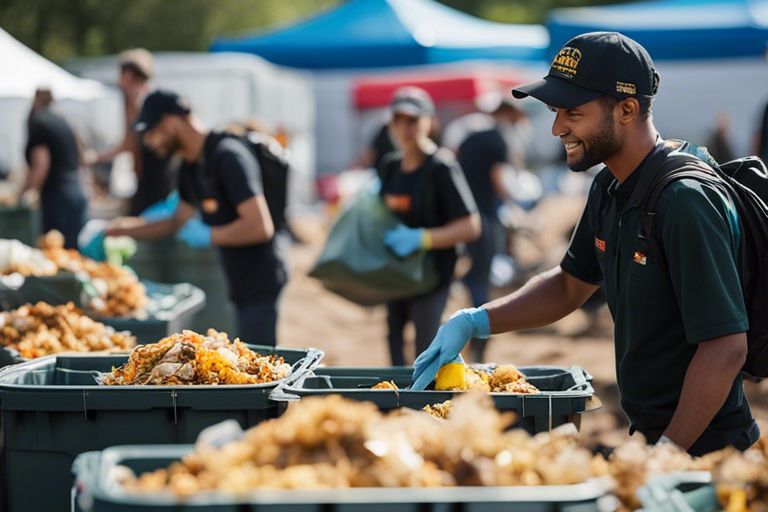
Compliance and Environmental Responsibility
As event organisers, it is crucial to understand and abide by legal requirements related to waste removal and environmental responsibility. Ensuring compliance with the law not only protects the natural environment but also safeguards your reputation and finances.
Understanding Legal Requirements
Event organisers must familiarise themselves with local and national regulations concerning waste management and disposal. This includes obtaining the necessary permits, following waste segregation guidelines, and using licensed waste carriers for transportation and disposal. Failure to comply with these legal requirements can result in hefty fines, legal action, and irreparable damage to the environment.
Promoting Sustainable Practices
Aside from meeting legal obligations, event organisers should strive to promote sustainable practices during and after their events. This includes minimising single-use plastics, encouraging recycling and composting, and collaborating with eco-friendly vendors. Promoting sustainable practices not only benefits the environment but also enhances the overall experience for attendees and stakeholders. It demonstrates a commitment to environmental responsibility and can cultivate a positive brand image.
Events Cleanup – Ensuring Proper Waste Removal After Your Event
In conclusion, proper waste removal after an event is crucial for maintaining a clean and sustainable environment. By implementing a thorough cleanup plan, event organisers can ensure that all waste is properly disposed of or recycled, reducing the impact on the local surroundings. It is essential to work with reputable waste management companies and incorporate sustainable practices such as using compostable or reusable materials. Additionally, educating attendees on the importance of responsible waste disposal can further support the efforts to keep the event area clean and eco-friendly. By taking these proactive measures, event organisers can demonstrate their commitment to environmental stewardship and set a positive example for attendees and other event hosts.
Events Cleanup – Ensuring Proper Waste Removal After Your Event
Q: Why is proper waste removal important after an event?
A: Proper waste removal is important after an event to maintain the cleanliness and hygiene of the venue, to comply with local regulations, and to minimize the environmental impact.
Q: What are the steps involved in ensuring proper waste removal after an event?
A: The steps involved in ensuring proper waste removal after an event include conducting a waste audit, providing adequate waste bins and recycling facilities, hiring a professional waste management company, and implementing a waste management plan.
Q: How can event organisers minimise waste during an event?
A: Event organisers can minimise waste during an event by using reusable or compostable materials, avoiding single-use plastics, encouraging attendees to bring their own water bottles and containers, and donating excess food to local charities.
Q: What types of waste can be recycled after an event?
A: Types of waste that can be recycled after an event include paper and cardboard, glass, plastic bottles, aluminium cans, and food waste for composting.
Q: What are the legal requirements for waste removal after an event?
A: The legal requirements for waste removal after an event vary depending on the location, but generally, event organisers are required to separate and dispose of waste properly, obtain necessary permits for waste disposal, and adhere to local waste management regulations.

